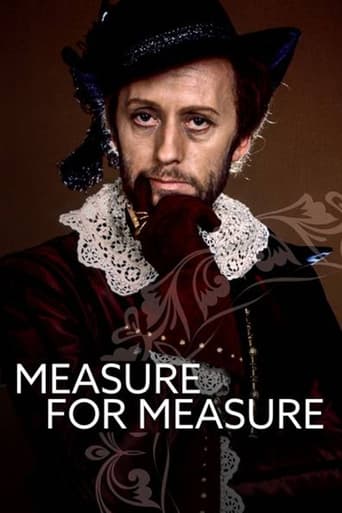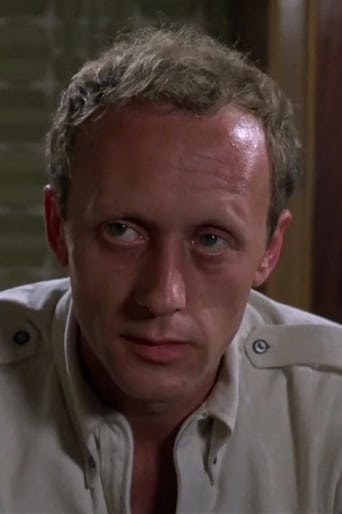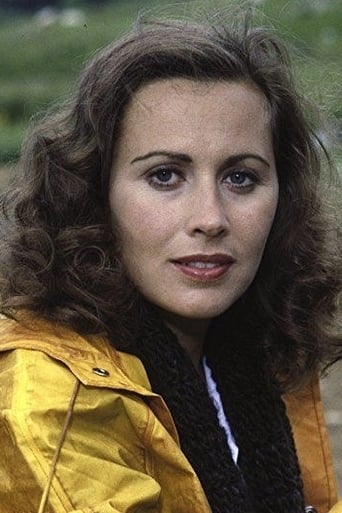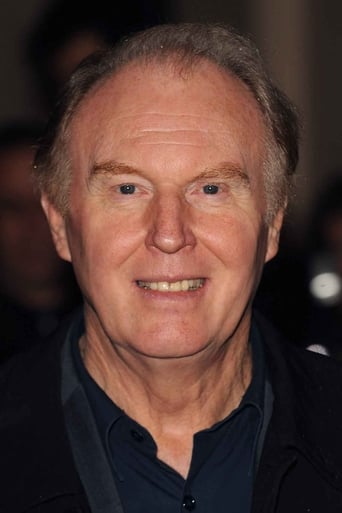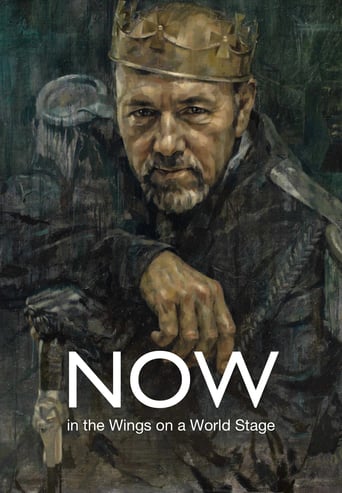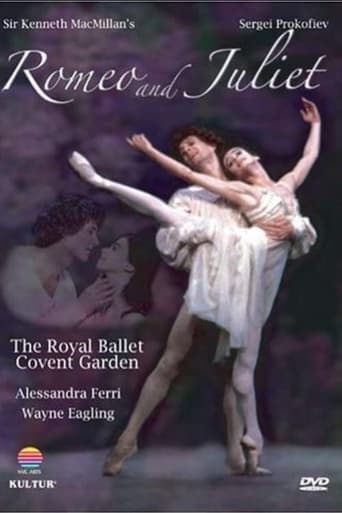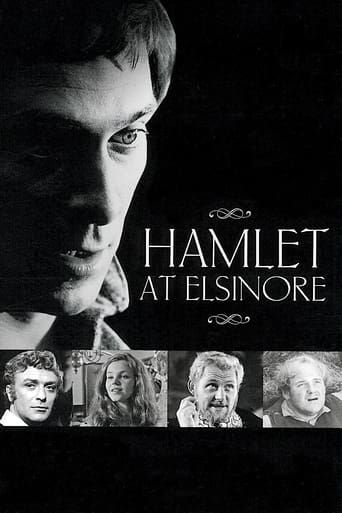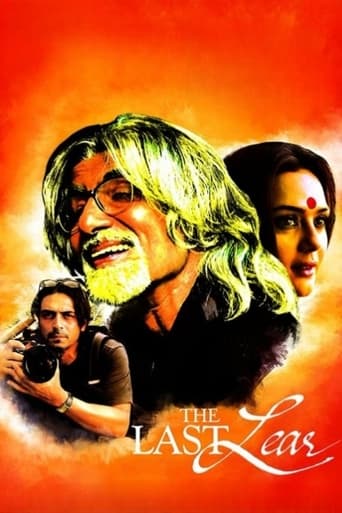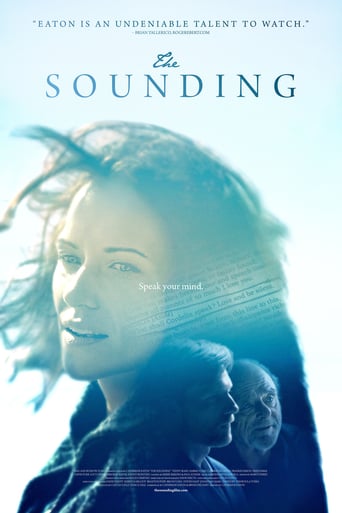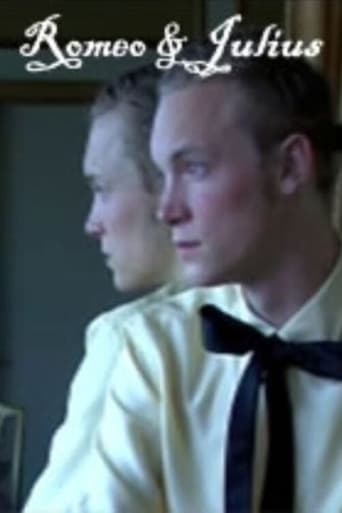Measure for Measure (1979)
When the Duke of Vienna takes a mysterious leave of absence and leaves the strict Angelo in charge, things couldn't be worse for Claudio, who is sentenced to death for premarital sex. His sister, Isabella (a nun-in-training), however, is a very persuasive pleader. She goes to Angelo, but instead of freeing her brother, she gets an offer from Angelo to save Claudio's life if Isabella sleeps with him. The only sympathetic friend Isabella has is a priest who, in actuality, is the Duke in disguise...and he has a plan.
Watch Trailer
Cast
Similar titles
Reviews
Must See Movie...
Best movie ever!
It's funny, it's tense, it features two great performances from two actors and the director expertly creates a web of odd tension where you actually don't know what is happening for the majority of the run time.
It is an exhilarating, distressing, funny and profound film, with one of the more memorable film scores in years,
If you want to see a straight, rigorously faithful adaptation of this not often read or studied play, please watch this version. The play itself is one of the best kept secrets in the Shakespeare cannon. The costumes are colorful and interesting and the sets (though the budget was clearly not hugely substantial) really flesh out aspects of the play you typically miss when reading it. The acting is fine, particularly from Lucio, Pompey (the clown), and the Provost. I will admit that the actor who played the Duke could have put more emotion behind what he was saying, though he did a good job. As a side note, he played Admiral Piett in Star Wars Ep. V & VI (I just thought that was interesting and funny). True this is a kind of no frills version, but, in my opinion, many of the modern 'adaptations' of Shakespeare's plays are weak because people of our age forget the unequivocally beautiful and startlingly profound language that Shakespeare abounded in. He truly offers metaphors that are profound and universal; if you wish to hear this powerful language spoken in a convincing and effective manner, please watch Measure for Measure.
Shakespeare's "Measure for Measure" is one of Shakespeare's darker comedies and has some decent musings on life, love and duty. It concerns the Duke of Vienna (Kenneth Colley), who decides to temporarily abdicate his throne and his place he puts the sinister Angelo (Tim Pigott-Smith). When Angelo decides to put a man to death for pre-marital sex, his sister Isabella (Kate Nelligan) pleads for his life. Angelo agrees one condition: she must surrender her virginity to him...Tim Pigott-Smith is well-cast as Angelo, and his frightened yet lusty eyes easily convey his character's torn emotions. Kenneth Colley is excellent as the Duke, who disguises himself as a monk and arranges a happy ending for Isabella. Colley has a strong command of the language and propels the story along seemingly without effort. Christopher Strauli is Claudio, the condemned man and Yolande Palfrey is very pretty as his betrothed Juliet.What irritates about this admittedly well-produced adaptations is their insistence on traditional costume and setting. Combined with 80s TV lighting, it really makes Shakespeare look like acquired taste rather than the vital playwright that he was and still is. The comics in this play, dandy Lucio (John McEnery) and the rustics led by Pompey (Frank Middlemass) get dialogue that sounds unexpectedly contemporary. Lucio describes women as "punks" and Pompey gets a wonderful bit of dialogue about his "bum". Derogatory insults, I know, but how well exchanges like this have played in a contemporary setting...I enjoyed watching this version of the play, regardless of the limitations imposed on it by the period in which it was filmed and would recommend renting it for those looking for a cheaper alternative to Shakespeare at the theatre.
Originally listed as one of William Shakespeare's comedies, Measure for Measure is now relegated to the status of being a "problem" play, meaning either that it doesn't fit into any box or that its content and message is a problem for orthodox interpreters of William Shakespeare's biography. Whether or not the play is a comedy, a problem play, or a tragi-comedy, it is a powerful work and one of Shakespeare's best. In the late 1970s, BBC and Time-Life produced the only filmed version of Measure for Measure in their series of 37 Shakespeare's plays. Although I have not seen more than a handful of BBC, Time-Life productions, this production stands out for the quality of the acting and the impeccable direction by Desmond Davis.Kenneth Colley is an appealing Vincentio, Duke of Vienna, who, dissatisfied with the corruption in the city, announces that he plans to visit Poland, handing over governing to his chief deputy, the rigidly puritanical Angelo, convincingly performed by Tim Piggot-Smith, who will be assisted by his wise counselor Escalus (Kevin Stoney). To observe how the city will fare, however, Vincentio travels to a monastery where he is provided with a hooded monk's robe which allows him to return to Vienna disguised as a priest, keeping his face partially covered by his hood.Taking over the reins of government, Angelo proceeds to enforce every statute, closing the houses of prostitution and arresting Claudio, a young nobleman (Christopher Strauli), for fornication by getting his lover Juliet (Yolanda Vazquez) pregnant, even though he had agreed to marry her. Under Angelo's order, he is to be executed in three days. On hearing the news, Claudio's friend Lucio (John McEnery) tells Claudio's sister, Isabella (Kate Nelligan), who is studying to be a nun, to go to Angelo and use all her power to convince Angelo to spare her brother's life.While Isabella, as portrayed by Nelligan, is cold and aloof, she is also intelligent and attractive, telling Angelo that "it is excellent to have a giant's strength; but it is tyrannous to use it like a giant." The hypocritical Angelo falls for Isabella, offering to go to bed with her in exchange for Claudio's life. Meanwhile, the "meddling" priest sets it up so that Isabella can escape the humiliation of having to sleep with Angelo by substituting Mariana (Jacqueline Pearce) in a bed-trick to be performed in the pitch-black night.Mariana is Angelo's former lover whom he had agreed to marry but backed out because "her reputation was disvalued in levity", though no details are provided. Duke Vincentio (still disguised as a friar) tells Mariana she will commit no sin by sleeping with Angelo because "he is your husband on a pre-contract." While Measure for Measure borrows from Cinthio's Epitia and Promos and Cassandra by George Whetstone, the play is a profoundly autobiographical work. If the Oxfordian theory is correct, the play speaks to a poignant episode in Oxford's life when, upon his returning home after his trip to Italy in 1576, his mind was poisoned by his cousin Henry Howard and his receiver, Rowland Yorke, both Catholics and enemies of the Protestant regime, to the effect that his wife Anne Cecil had been unfaithful to him.They told him that the daughter Anne had just given birth to could not be his since the last time he had slept with her was twelve months ago in October. Indeed, Oxford had not been told that his wife was pregnant until March and word of the baby's birth was not given to him until September, not by his wife but by her father, William Cecil. As a result of Anne's suspected infidelity, Oxford was estranged from his wife for over five years and only later in life became remorseful, reconciling with Anne and accepting Elizabeth Vere as his daughter. As far as the bed-trick is concerned, two separate sources recorded that de Vere conceived his first child by unknowingly sleeping with his wife when he thought he was with a mistress.One story circulated in The Histories of Essex in 1836 that Anne had been substituted by her father William for one of the Earl's mistresses when the Earl was in a drunken state. Whether this story is true or not (how anyone, no matter how dark it is nor how drunk they are could not know who they are sleeping with boggles the mind), Shakespeare was apparently able to see its dramatic potential, using the bed trick as a device in both Measure for Measure and All's Well That Ends Well. Likewise, in play after play, the male protagonist conceives a strong animosity toward a devoted wife, imagining her unfaithful to him on flimsy grounds, only to be later overwhelmed with remorse: Imogen in Cymbeline, Hermoine in The Winter's Tale, and Desdemona in Othello.In Measure for Measure, Vincentio and Angelo may represent two sides of the author's character, the noble and good-natured Duke, and the judgmental and unforgiving Angelo. It is a self appraisal in which the author does not escape indictment, though his misdeeds are eventually forgiven - as they were in life (but only after he was imprisoned in the Tower like Claudio for impregnating courtesan Anne Vavasour). While the themes eventually play out to everyone's advantage, the getting there is where the genius lies and the final act of Measure for Measure is every bit as moving and poetic as any of Shakespeare's well-known tragedies.
Back in the 1970s, someone in England had the extraordinary idea of producing a made-for-television version of all the plays attributed to The Shakespearean Poet, who hid behind the name and person of "William Shakespeare". The idea was hubristic and more than a bit silly, since the usual practice in such an undertaking would be to produce an "all-star" version"--casting the best actors available for each part as Herbert Von Karajan tried to do when he recorded versions of famous operas for posterity. In this case, the choice of actors often seemed to be based on no discernible nor announced purpose; and the result was filmed versions of 37 plays which were extraordinarily uneven in quality, with many lines being read by youthful actors lacking classical training and/or ability. The best of all these version, in many ways, for actors and writers alike I believe to have been "Measure For Measure". Those seeking the true identity of "Shakespeare" could do worse, I suggest, than by starting with the fact that the playwright set three plays in 'Bohemia', which he must have visited to gain the knowledge of its constitution he showed, that he was fundamentally a Medieval not a Renaissance mentality and that by his writing's complexity, length and contexted idea-quality he was obviously over forty-five years of age when he began writing for the public stage in 1590. Bohemia was a kingdom independent under a moralistic government as early as 1530. Here it offered the playwright a chance to demonstrate the difference between personal belief and an enforced religious puritanism which lacked all the qualities of a true religion and none of those of an authoritarian dictatorship. The play involves a seemingly virtuous fellow, Angelo, who with the city's leader gone, is in charge in his place--even though he is being tested by that worthy without knowing this is so, for the leader remains to watch his course of action. His major problem involves young Claudio, who violates a statute by impregnating one Mariana outside of wedlock. He is willing to marry here, happy to do so, except that he has been clapped into jail and is awaiting execution. Isabella, his sister, speaks for him, with great effect; too great, since the future nun is propositioned by Angelo--he will spare her brother if she will let him make love to her. The effects of this triangle, as the cowardly Claudio begs his sister to submit, becomes dramatically tense. Will the Duke step forward and intervene? Will Angelo relent? Will Isabella surrender herself? Will Claudio be murdered by the iron letter of the law/ The plot is unusually strong, of course; and most everything is resolved by the ending. But the revelation of the difference between true faith, the monastic sort, which even agnostics can admire in Isabella and the puritanical-dictatorial pseudo-religion of Angelo which is worldly, divisive and totalitarian and utterly impractical is revealed here very clearly...A word of caution to post-1994 sufferers from theocratic pretensions from the Renaissance's minds is strongly spoken by the Shakespearean Poet here. This is unarguably largely a photographed stage play; but some minor dialogue has been excised, some clever camera-work introduced; and the production's entire middle section moves along quite effectively--the internal "dream sequence" between the exposition and first statement and the resolution of a theatrical work often works well with a bit of trimming when a play is translated into cinematic space-time events. Odette Barrow's costumes are good and Stuart Walker's production design is unobtrusive and serviceable at all points. Desmond Davis directed the production and by any standard I know his work appears to have been admirable by its results. Kate Nelligan's impersonation of Isabella is award-caliber and a lasting tribute to her dramatic ability. She is tragic, sweet, intelligent, sympathetic and desirable all at once. As Angelo, Tim Piggot-Smith does quite well in a difficult part for a young act; his intelligence and his ability to read a good one-liner serve him well. As Claudio, Christopher Strauli gets a good deal out of a part that in lesser hands can be repetitive. As the comical Pompey "The Great", Frank Middlemass has his finest cinematic part ever. Kenneth Colley is likable and interesting as the watchful Duke who tests Angelo, and as Escalus Kevin Stoney has a difficult part filled with reactions, remonstrations and nuances which he handles very professionally by my standards. Others in the cast include Adrienne Corri as Mistress Overdone, Eileen Page as Francesca, Yolanda Vasquez as Juliet, Jacqueline Pearce as the long-suffering Mariana, John Mcenery as Lucio and several more, all well-cast and more than adequate to their tasks. This is an attractive production which I find to be interesting as an ethical and moral question and well-paced as a realization of the playwright's intention. of all the series of BBC Shakespearean productions, this is the one I regard as the most cinematic and the most successful. I recommend it to the viewer whenever it is shown, if only for Kate Nelligan's lovely achievement.
